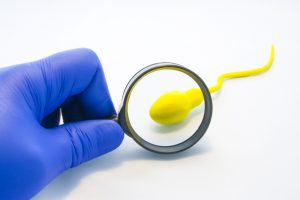What if children were manufactured in factories rather than the natural process? Sperm would probably be one of the least mentioned elements. Since it is the primary factor in baby making, sperm is highly regarded. For you to be able to make a baby, there are factors to consider in your sperm. These factors include sperm count; it is measured per ejaculation.
According to studies, a healthy ejaculation releases 15 million sperm per milliliter. Other factors include the hormonal balance, structure of the sperm, and its quality.
Studies in the publication of Anatomy and Psychology shows there is no maximum age limit for sperm production. However, the quality and the quantity of sperm reduce as you age. At your 20s, the quality and the volume of your sperm are high. From the age of 40 and above, the quality and quantity of your sperm become low.
At your 20s, your sperm tends to be more energetic. They have few abnormalities, and you are not likely to transfer unhealthy genetics to your offspring. When you are at your 40s and above, you are four times likely to transfer undesirable genetic characteristics to your baby.
Due to various reasons, some people may not be comfortable to start families in their early 20s. Instead, they prefer doing it at their forties. It is not generally impossible as there are devised methods of collecting your sperm through technology. You can have them removed from your testes and stored in a laboratory until you are ready to start a family.
The Sperm Cycle
To understand the sperm, it is essential we look at its formation. The sperm goes through several stages before becoming complete. Sperm is produced in your testes. At puberty is when you experience your first ejaculation that has sperm. Thus, sperm production begins at puberty. Spermatogenesis is the term given to the sperm production cycle. It starts with mitosis. At this stage, the cell is diploid. The next step is the division of the diploid cell in the mitosis step. This division is primary and divides the cell to two.

After primary division, the cell undergoes further division called secondary division. After secondary division, the sperm is ready to undergo maturation. According to studies found in Anatomy and Psychology, this process takes about 64 days. This study also shows that the next cycle starts after an approximate of 16 days after the completion of the first cycle.
Factors Affecting Sperm Count
Sperm count is the number of sperms released per ejaculation. As seen earlier, your sperm production does not stop till death. However, the number of sperms produced may decrease as you age. Several factors affect your sperm count, other than your age. The following are some of those factors:
A. Alcohol and Drug Abuse
Alcohol and drug abuse affect the testosterone hormone. This hormone is responsible for the production of sperm. Once affected by these substances, it may completely stop producing sperm or lower the level of output. As a result, sperm count becomes lower than usual. You should minimize your alcohol intake to the recommended amount of two beers in a day. Avoid drugs completely.
B. Obesity
Obesity is gaining excess weight than one recommended by physicians. Once you become obese, your hormone testosterone, which is responsible for sperm production, gets affected. The excess body fat hinders the production of free testosterone. As a result, it affects your sperm production. To prevent this effect, do regular exercises and eat healthy diets.
C. Stress
Stress can sometimes be inevitable. The daily hurdles in life such as job, bills, and family may contribute to anxiety. Stress affects the brain. In return, the mind is unable to coordinate with other body organs. Lack of coordination will cause miscommunication between these parts and alter the frequency of sperm production.
You should relieve yourself from stress by talking to a person you feel free when around. Reducing stress will help to avoid extreme fall in sperm levels.
D. Environmental Factors
Prolonged exposure to certain environmental conditions affects sperm production. Factors such as chemicals, metal, radiation and extreme temperatures should be avoided. These factors take long to leave the body once they get in the bloodstream. Others may have a permanent deposition. Their presence is what hinders the sperm cycle, making you experience low sperm count.
Although it may be difficult for those specialized in these areas to avoid contact, it is advisable for them to have protective gears. They will help minimize these effects.
E. Medical Factors

Medical factors include some medications used to control long term illnesses. These medicines react with your cells to create inhibitors. These inhibitors affect the production of the testosterone hormone. When this hormone is low or inactive, sperm production becomes low or impossible.
Therefore, when you visit your physician, your sperm count will read low. When you are on these long-time treatments, you should talk with your endocrinologist. They will give you an alternative that will help you maintain the right amount of sperm.
Although you experience sperm production throughout your life, it is important to note that their output may decrease. You should not overlook the factors leading to their decline. You should always aim at maintaining the required quantity. After all, it is not a wonder to find an elderly man getting children while his young counterpart is unable. Above all, carry out regular check-ups and get relevant advice from professional physicians.







